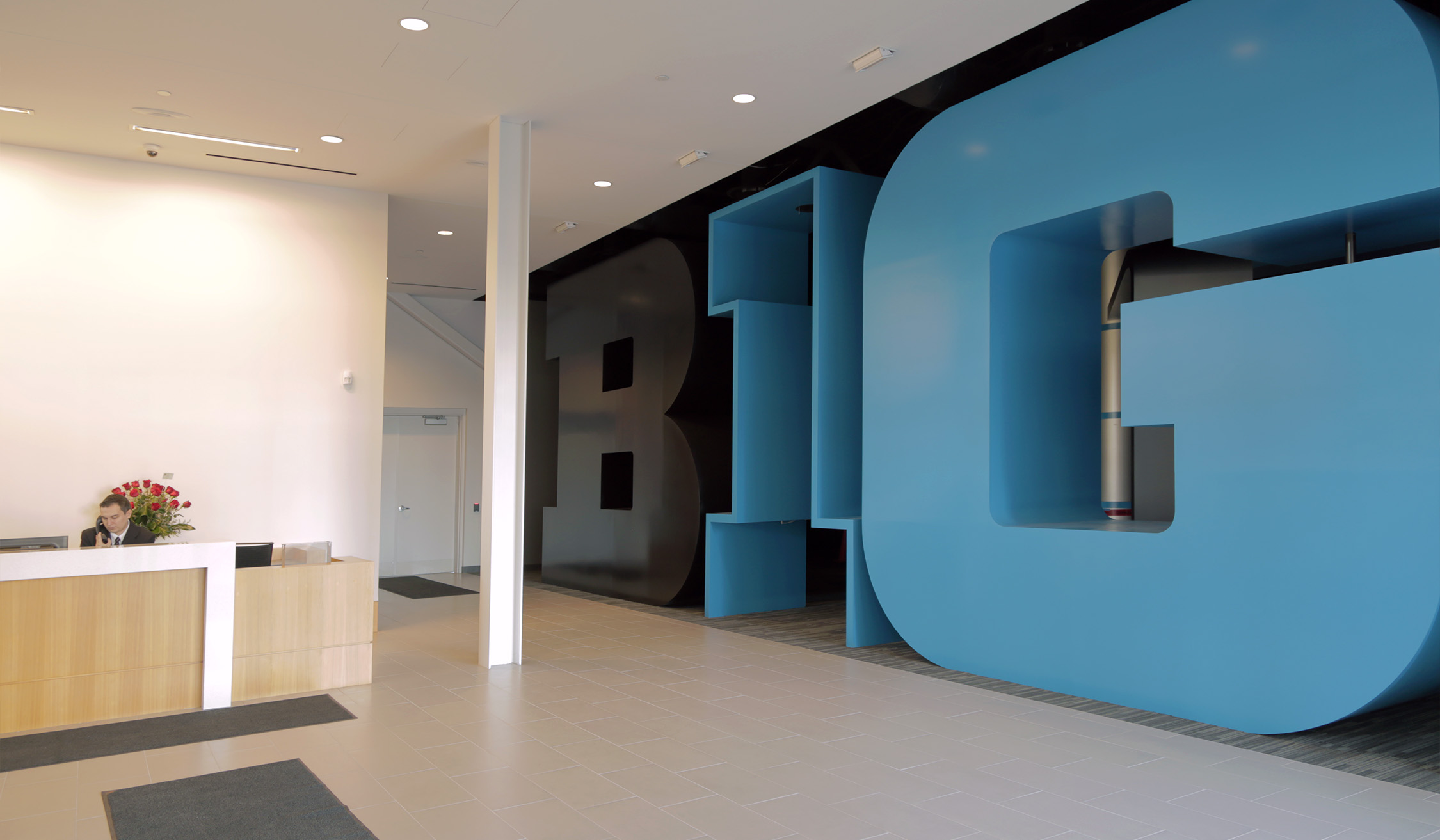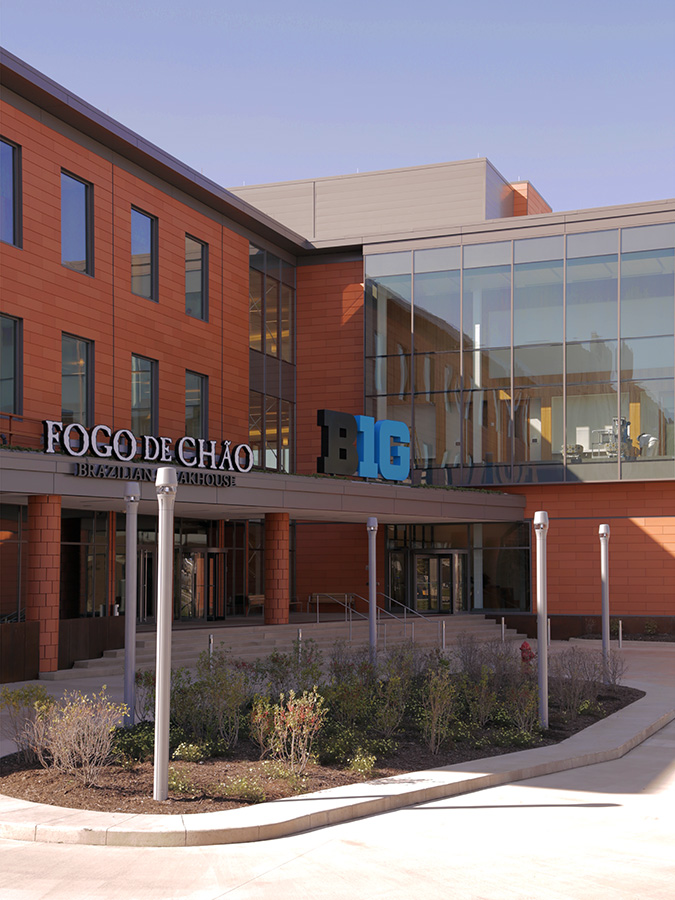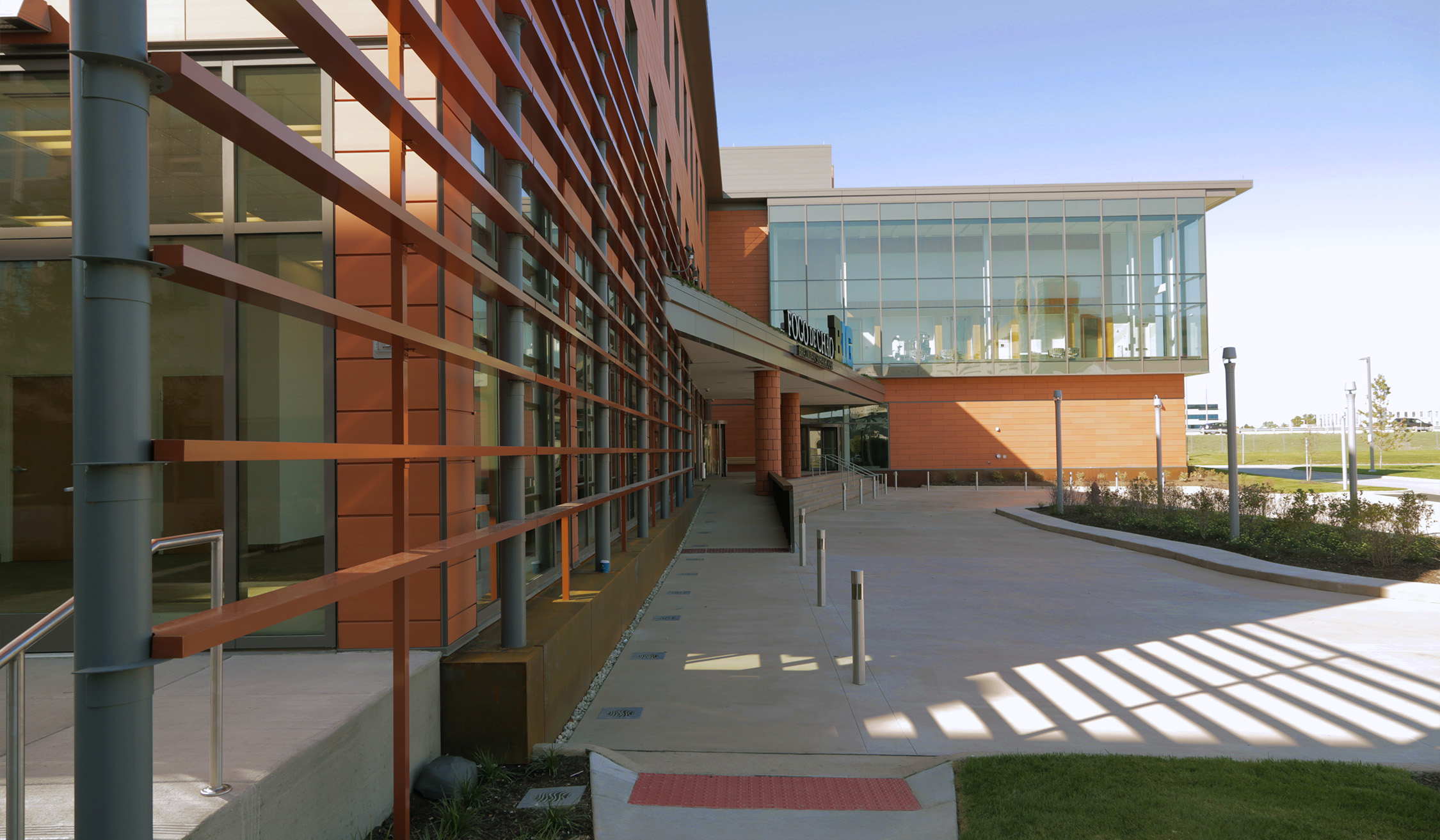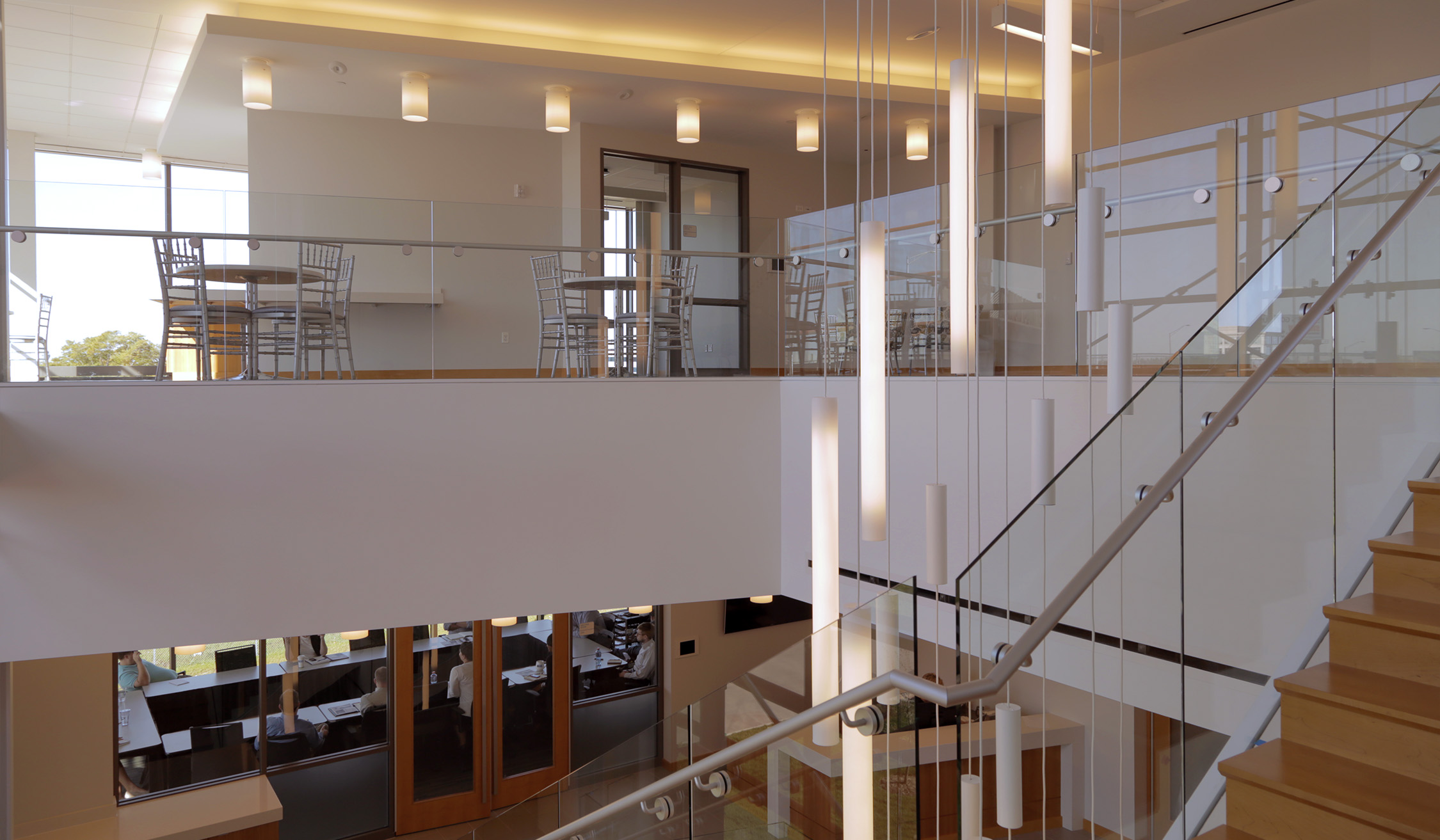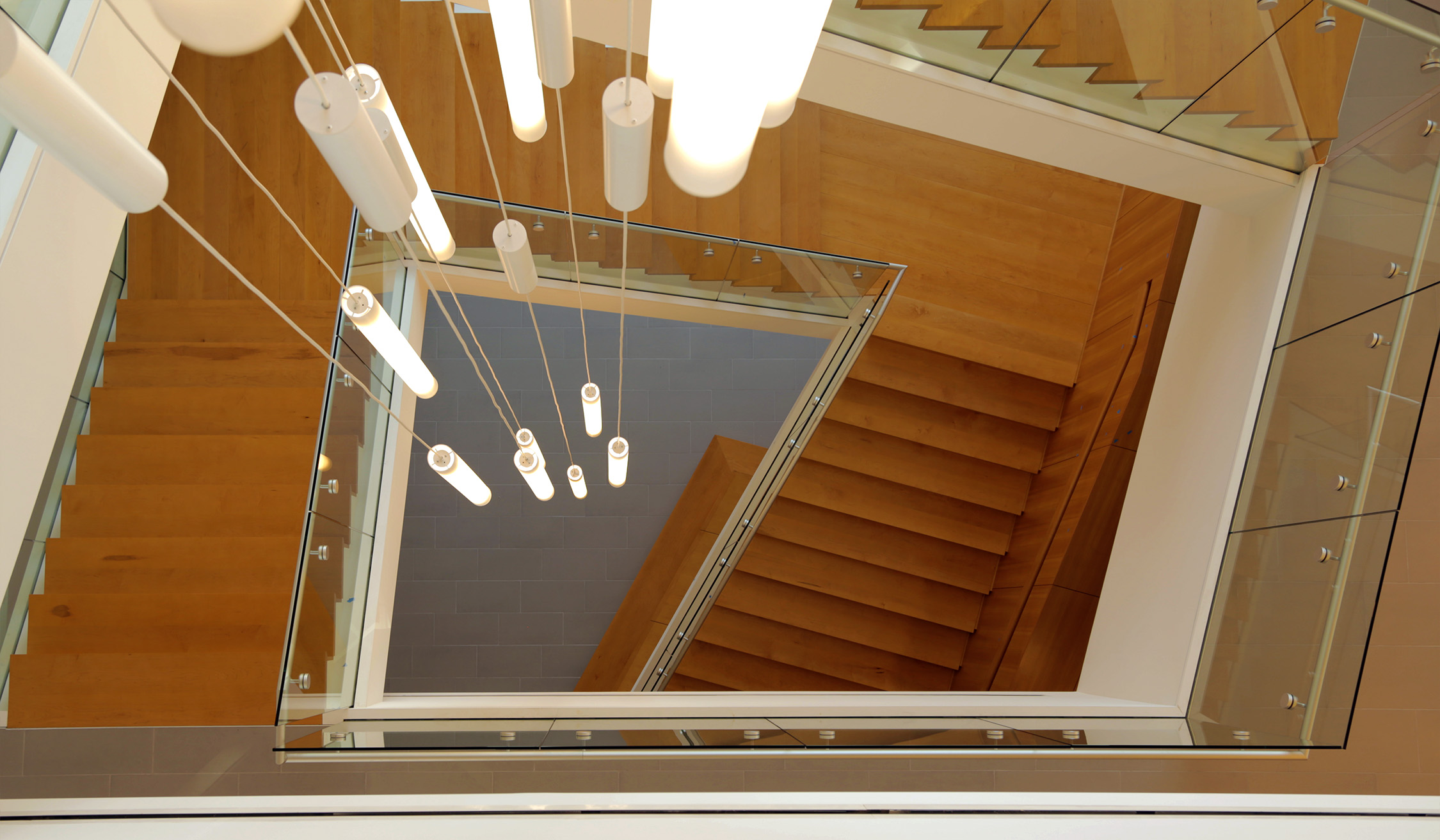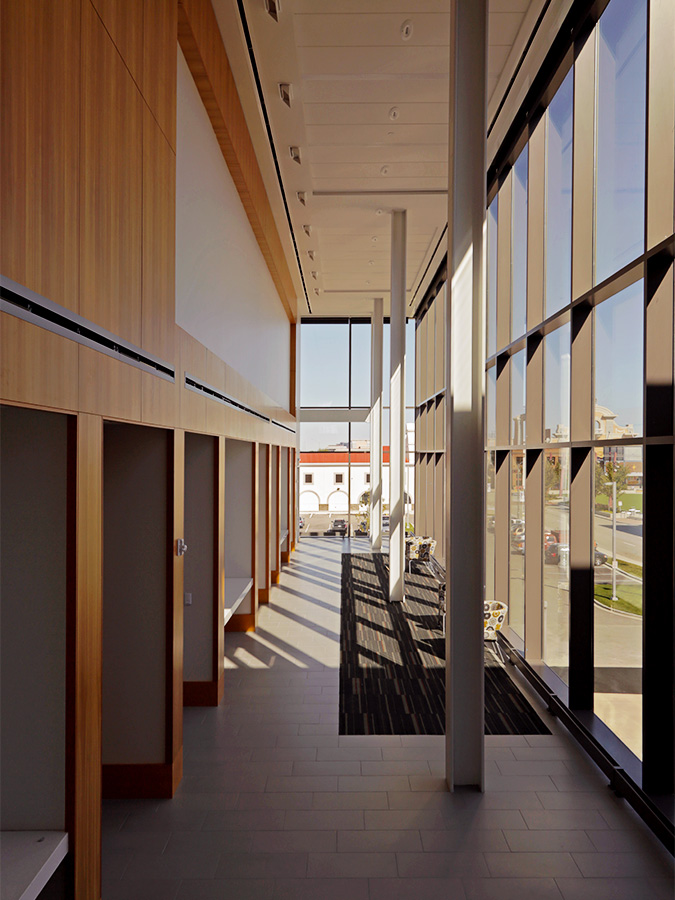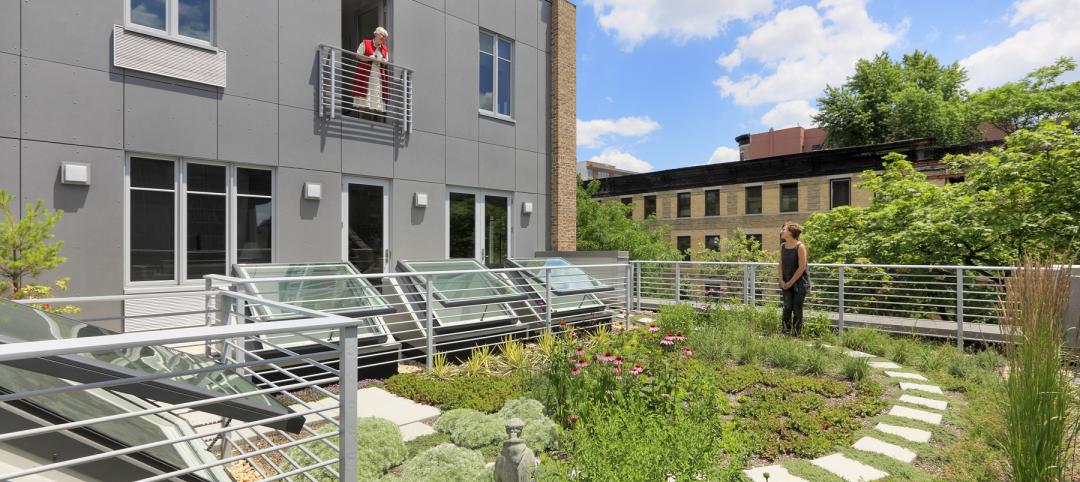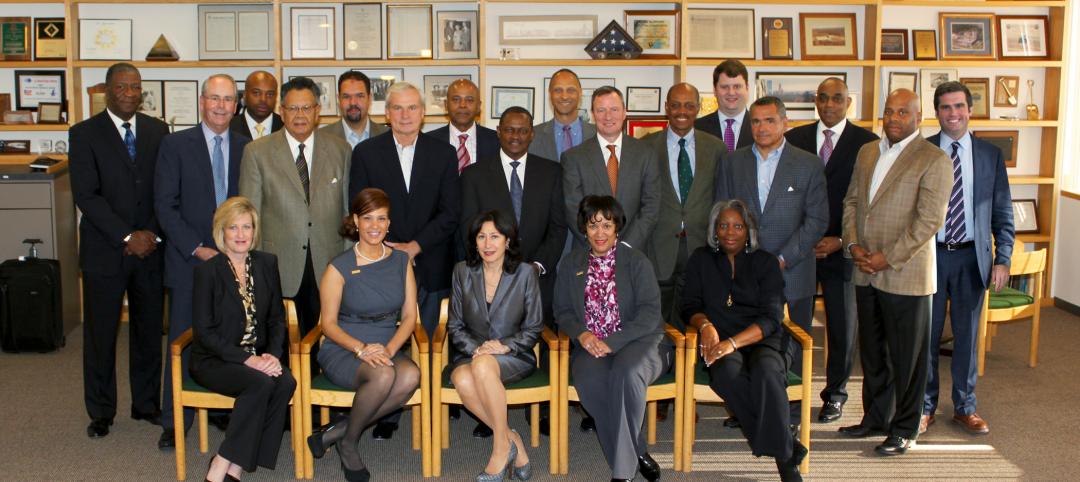With 12 institutions, 280 national championships, and 120 years of historic intercollegiate sports, the Big Ten Conference will continue its mission of “honoring legends and building leaders” in a new $20 million, 50,000-sf headquarters in Rosemont, Ill.
The mixed-use HQ features a 3,500-sf interactive museum on the first floor showcasing past and present legends. The building also includes a conference center on the second floor for more than 130 annual Big Ten academic and athletic meetings that educate tomorrow’s Conference leaders. Oh, and don’t forget the 10,000-sf Brazilian steakhouse, Fogo de Chao, on the first floor. Athletes need to eat, too.
The facility will also include an office for the Village of Rosemont, a Big Ten visitor’s center, catering kitchen, fitness center, dining area, office space for the Conference’s 40 on-site staff members, and a third floor video command center, where conference officials can train and monitor games on eight, 60-inch LCD screens and one 130-inch screen with separate, sound-isolated booths. Conference officials also have the ability to broadcast on the Big Ten Network from the command center.
“The completion of our hew headquarters has given us the space needed for our staff to function properly while leaving room for future growth,” said Brad Traviolia, Deputy Commissioner, Big Ten Conference. “The state-of-the-art conference center allows us to host gatherings of leaders from our member institutions as well as from across the country.”
Fast-tracked construction
Fast-tracked to meet the first of the Conference’s meetings last year, Leopardo Companies, Inc. (www.leopardo.com), the project’s contractor, worked with base-building and other space-specific architects as well as the building’s structural and MEP engineers to complete the facility in just under a year, opening in October 2013.
Beginning construction in the late fall of 2012 created a challenge for Leopardo, which had to battle Chicago’s severe winter weather on multiple occasions.
“We needed to get the pad constructed and complete all the underground utility work as quickly as possible, pouring the slab on grade before we even erected the steel to save time and money for the client, relative to the imminent winter weather at the time,” said Leigh McMillen, vice president, Leopardo. Even so, a massive wind tunnel threatened the completion of the second and third floor concrete, and a temporary enclosure had to be rebuilt during construction before successfully completing the slab.
Once construction started, the decision was made to finish the interior of the museum space instead of just a core and shell build out, with the same fast-tracked delivery. Leopardo suggested a depressed slab, or 6-inch computer access floor, to provide the flexibility to both move interactive displays as needed over time and also the right amount of cooling/heating. With a depressed slab, Leopardo successfully finished the slab-on-grade pour before the weather worsened, saving money on winter conditions and expediting the schedule. Improved safety was another benefit of having the slab-on-grade poured early. Working off of a flat, finished concrete slab ensures each ladder, scaffold and lift had a firm footing to the ground.
A unique terra cotta rain screen was specified for the building’s exterior in orange to resemble real brick. Manufactured in Europe, the 1x4-foot clay panels hang on a steel rail system that’s mounted to the building’s exterior framing. In its highest profile application to date and its debut in the Chicago area, Leopardo teamed with another Midwest contractor to meet the distinctive challenges that came with its installation.
"I think the idea and execution of a multi-functional space?office, museum and restaurant?is a good example of the construction team finding an innovative solution," said Brad Traviolia, Deputy Commissioner, Big Ten Conference. "Working with Leopardo on solutions like this make the building what it is today and we are extremely pleased with the finished product."
Located in the heart of Rosemont’s new MB Financial Bank entertainment district, the most recognized brand in intercollegiate sports history just got BIGger.
Related Stories
| Dec 8, 2011
Keast & Hood Co. part of Statue of Liberty renovation team
Keast & Hood Co., is the structural engineer-of-record for the year-long $27.25 million renovation of the Statue of Liberty.
| Dec 8, 2011
HDR opens office in Shanghai
The office, located in the Chong Hing Finance Center in Shanghai’s busy Huangpu District, will support HDR’s design efforts throughout Asia.
| Dec 8, 2011
HOK elevates the green office standard
Firm achieves LEED Platinum certification in New York office that overlooks Bryant Park.
| Dec 7, 2011
ACE Mentor Program receives Presidential Award for Excellence in Science, Math and Engineering Mentoring
Thornton Tomasetti founding principal Charles H. Thornton responsible for launching ACE.
| Dec 7, 2011
NSF International qualifies first wallcoverings distributor to the New American National Standard for Sustainable Wallcoverings
TRI-KES demonstrates leadership in environmental stewardship as the first distributor to earn qualification.
| Dec 7, 2011
DPR Foundation awards $590,000 to youth organizations
Grants will fund programs for disadvantaged kids across six states.
| Dec 7, 2011
Autodesk agrees to acquire Horizontal Systems
Acquisition extends and accelerates cloud-based BIM solutions for collaboration, data, and lifecycle management.
| Dec 7, 2011
ICS Builders and BKSK Architects complete St. Hilda’s House in Manhattan
The facility's design highlights the inherent link between environmental consciousness and religious reverence.
| Dec 6, 2011
Construction industry leaders gather for forum on diversity
Declared a “groundbreaking” event for the industry, Gilbane’s First Annual National Partners Council Forum addressed diversity and inclusion as well as building partnerships with minority, veteran, and women-owned businesses.


